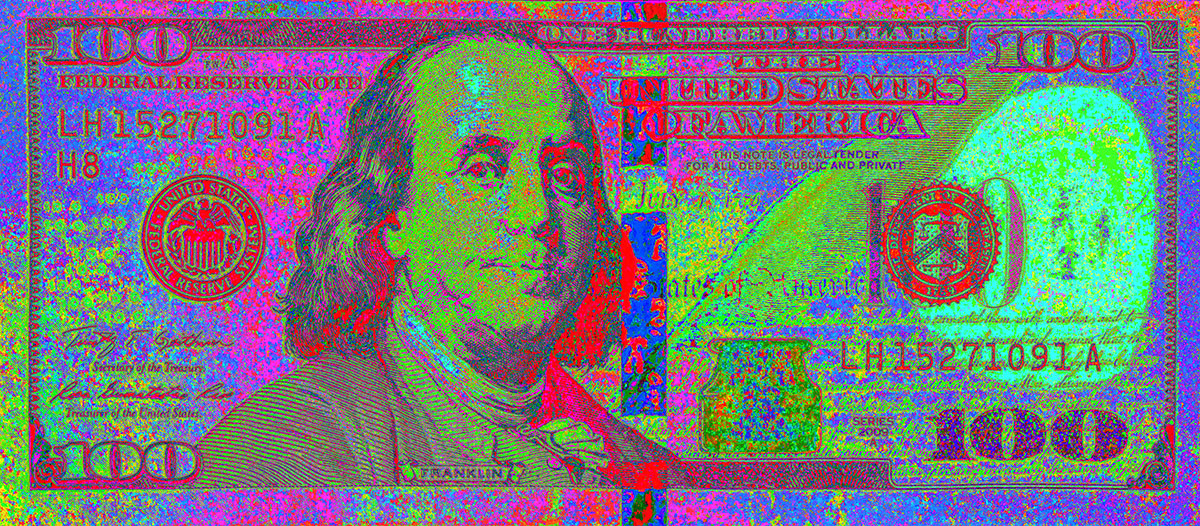The U.S. is in a psychedelic renaissance. Following the boom of the cannabis industry, entrepreneurs are eager to get in on psychedelics while they still can. In tech culture, psychedelics and microdosing play a prominent role, so for many, the interest stems from personal experience. From research to cultivation, to events and travel, to media and culture, there are plenty of psychedelic industries for entrepreneurs to explore. However, the relationship between business and psychedelics is complicated. Safe and affordable access to psychedelic medicine and therapy is generally regarded as a good thing for everyone involved. However, many psychedelic plants and medicines have roots in indigenous cultures, and psychedelic medicine is often meant to question the ego, rather than feed it. Because of this, there is also understandable concern about capitalism taking over something sacred that doesn’t belong to it. But given the tremendous hoops that psychedelic medicine already has to jump through due to government regulations, money is required to bring it to the people. Keep reading to better understand the controversial relationship between psychedelics and entrepreneurs.
The Role of Psychedelics in the Entrepreneur Community
Between Steve Job’s youthful experiences with LSD and the overlap between Burning Man and the tech community, psychedelics are entrenched in the tech world. Many entrepreneurs simply enjoy the recreational use of psychedelics such as LSD, Many are using the substances to enhance creativity and professional performance. Lately, this is in the form of microdosing.
In the psychedelic world, a microdose is often the practice of consuming low, sub-hallucinogenic doses of psychedelic substances, often several days a week, with the goal of increasing professional performance, focus, and clarity, and as a harm reduction tool to discontinue substances such as alcohol. With LSD, microdosing is usually considered one-tenth of a standard dose, and for psilocybin, one-fifth. According to a 2019 study, most people microdose two to four times a week with the primary goal of performance enhancement. One tech entrepreneur told Inc that “Psychedelics give me a new sense of emotional freedom and a new perspective. Over the subsequent days and weeks, I start to integrate it with more practical ideas and things come out of that.”
It is becoming more common for business coaching courses to include plant medicine or psychedelic ceremonies. For example, business coaching courses, such as Entrepreneurs Awakening, now include ayahuasca ceremonies in Peru. Regardless if entrepreneurs are attending such courses, many are looking to cash in on the psychedelic renaissance.
Controversy Surrounding Entrepreneurs and Psychedelics
As many psychedelics, such as ayahuasca and ibogaine, originated as spiritual tools in indigenous cultures, the use of such substances by Western entrepreneurs, especially for the goal of profit, is controversial in some circles. Furthermore, many people seek out psychedelics for the goal of seeing past the ego, which some consider being in contrast with the goals of capitalism. However, as it pertains to legalizing psychedelics in the U.S., it appears we cannot have one without the other.
For instance, in 2018, the FDA granted a breakthrough therapy designation to the company Compass Pathways. They filed a patent for its psilocybin formulation filed with the SEC to raise $100 million via an initial public offering (IPO) on the NASDAQ, later their IPO was upsized from $100 million to $127.5 million.
As companies look to profit from psychedelics, the psychedelic community increasingly holds events such as “Psychedelics Within Capitalism: An Online Discussion” moderated by Lukas Basedow, Patrick Wentorp, and Andy Meijer and hosted by the Mind Foundation. “Can psychedelic therapy be offered in an ethical way within the framework of capitalism?” asks the online invitation. It’s worth noting that at a glance the three moderators all appear to be white men, further demonstrating the complexities of creating accessible psychedelics while maintaining ethics and diversity.
Ethical Psychedelic Entrepreneurship
One of the reasons there may be so much interest in psychedelics is that they show so much therapeutic promise. Many entrepreneurs, such as Michael Costuros, the founder of Entrepreneurs Awakening, became interested in the plant medicine scene due to their own experiences with ayahuasca or other substances.
MDMA is currently in phase 3 trials in the U.S., Canada, and Israel for PTSD, and could be FDA-approved by 2023, which has immense implications for the one in 11 Americans who will be diagnosed with PTSD in their lifetime. MAPS raised $30 million in non-profit donations in six months for this final research. While the psychedelic community largely wants FDA approval of MDMA to treat PTSD, if the same people are to take issue with capitalism and psychedelics, there are a few things worth noting. For instance, contributors include the Fournier Family Foundation, created by Alan Fournier, a hedge fund manager and founder of Pennant Capital Investors. As it pertains to FDA-approval for psychedelics, big money is the rule, not the exception. Johnson & Johnson was behind the ketamine-derived nasal Spravato, which is the only currently FDA-approved psychedelic medication.
Others are looking to cash in before psychedelics become mainstream. In an article titled “Forget Cannabis: Psychedelic Medicine Is the Better Investing Opportunity,” writer George Budwell states “Psychedelic therapies will probably sport markedly stronger intellectual property rights than most medical cannabis products. This built-in economic moat should translate into steady levels of revenue growth for the industry.”
Companies have to make money to survive and are already heavily restrained by the legal restrictions imposed by the federal government. Even when a business is well-intentioned, it can be tricky to navigate ethics while already working a maze. In the business of psychedelics, it’s rarely black or white, but an ethical grey area.
Conclusion and Final Thoughts
The use of psychedelics by entrepreneurs is not new, nor is the trend likely to go away. While many people within the plant medicine feel discomfort with corporate money entering the picture, it’s a simple truth that such money helps psychedelic medicine enter trials, become FDA-approved, and more accessible. Calling on the lesson psychedelic medicine can teach everyone, businesses should study the origins and ethics of psychedelics. Those wary of their presence should also consider the help entrepreneurs can offer the community and the benefit of psychedelic medicine for all.







